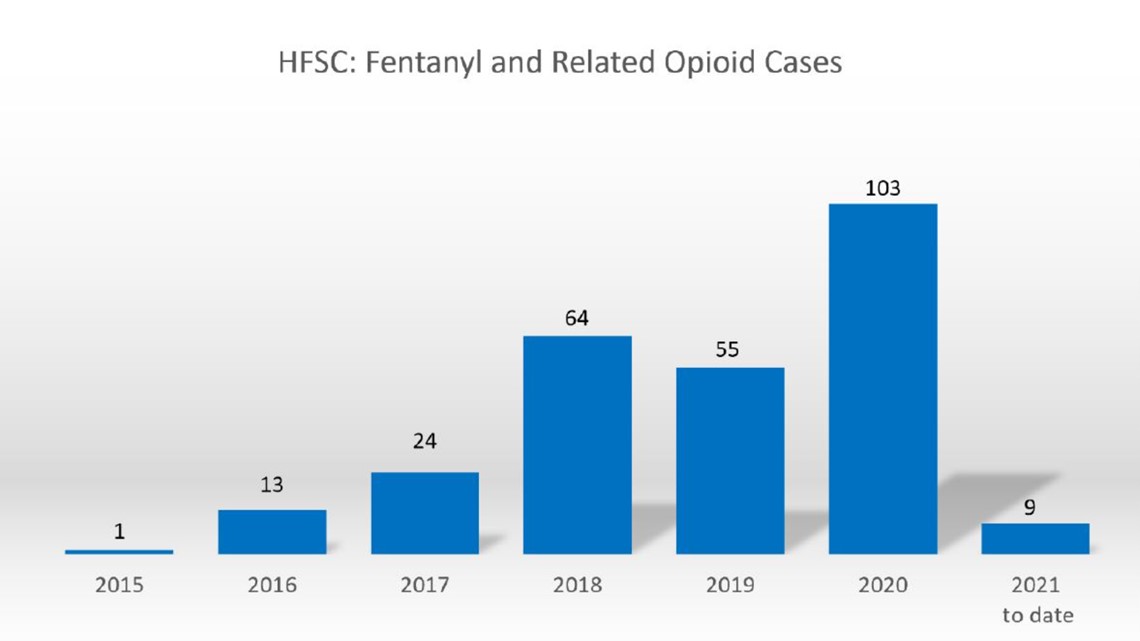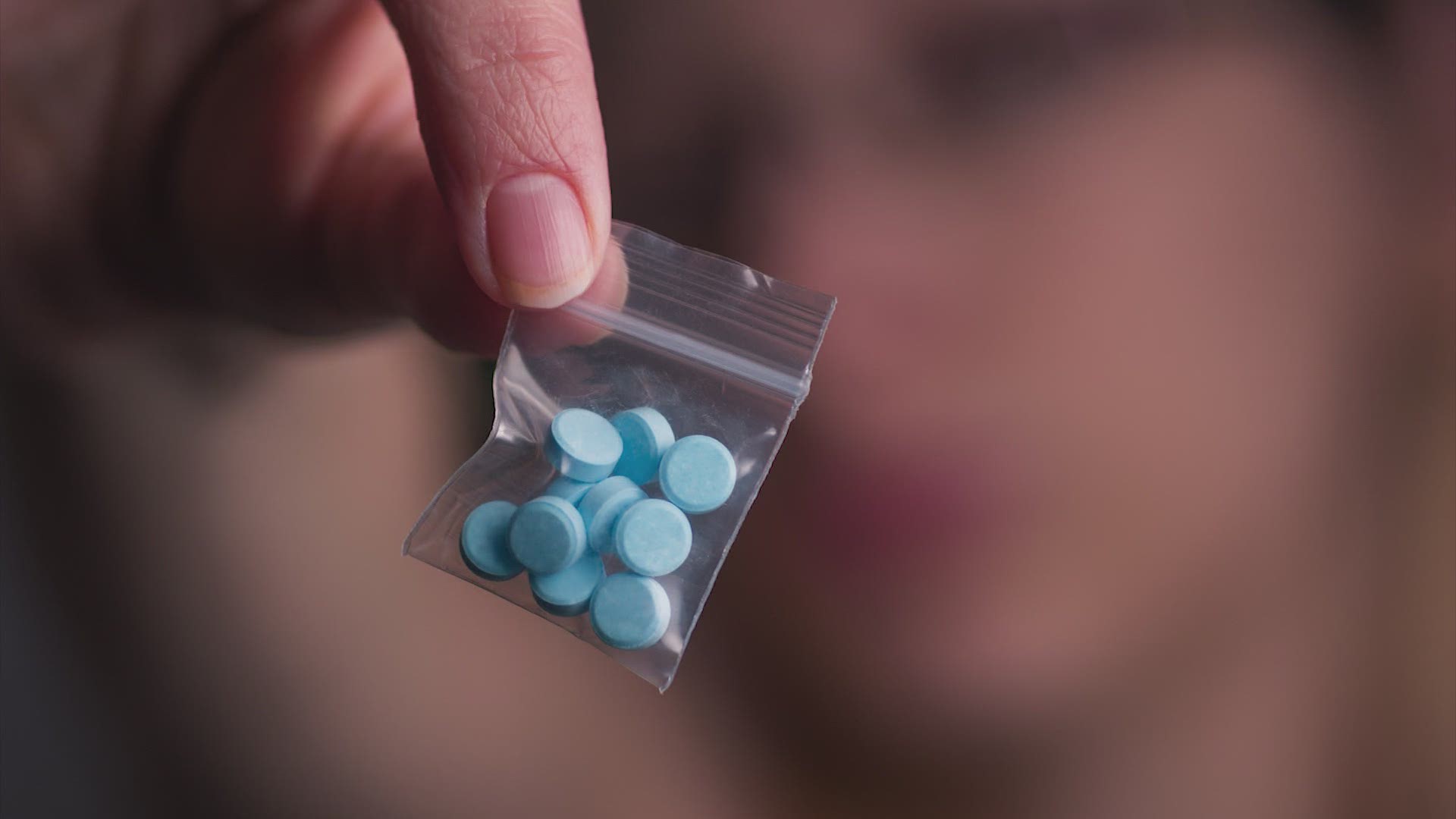HOUSTON — Fentanyl has been found in Houston-area XTC tablets — they are made to look like a “party” drug but instead could be deadly, especially to the young people who tend to buy them, warned The Houston Forensic Science Center on Thursday.
The lab said the tablets are a significant, potentially deadly, health risk.
“For several years we have been seeing increasing instances of fentanyl in pills of all varieties, from OxyContin to hydrocodone. This, however, is the first time we are seeing it in XTC, a drug often marketed to teenagers,” said Dr. Peter Stout, HFSC’s CEO and president.
HFSC said many of these tablets contain not only deadly opioids, but also other dangerous drugs, most often methamphetamine.
“Nearly all of the XTC tablets we see in the lab have meth in them,” said James Miller, HFSC’s seized drugs manager. “This is the first time we have identified fentanyl along with meth in an XTC tablet.”
“Fentanyl is an extremely potent, often deadly, opioid and the only way to know if that’s what’s in these pills is through laboratory testing. Now, drug dealers are lacing everything with fentanyl, and even on occasion with deadlier carfentanil, creating terrifying circumstances for the community,” Dr. Stout said.
According to HFSC, fentanyl is a synthetic opioid that is 100 times more potent than morphine and 50 times more potent than heroin.
“It can kill almost instantly. In 2020, HFSC identified fentanyl in 103 cases, an 87 percent increase from 2019. In the first three months of 2021, there have been 9 cases with fentanyl. This compares to 55 fentanyl cases in all of 2019,” the lab noted in a press release.


More from The Houston Forensic Science Center:
The U.S. Drug Enforcement Administration (DEA), spearheads many of the efforts made to remove these drugs from the streets and protect the community.
“For all of us in law enforcement, nothing is more important than the safety and security of our communities – particularly our children,” said DEA Associate Special Agent in Charge Erik Smith. “DEA, along with Houston PD and other partners, continues to relentlessly attack these illicit fentanyl supply chains. Equally important is awareness, education, rehabilitation and recovery. These all working together, combined with aggressive law enforcement, is what will ultimately make a difference and save lives.”
Also watch: Jan. 2020 major meth bust in the Houston area
HFSC usually finds fentanyl in a variety of counterfeit pharmaceutical pills as drug dealers substitute the cheaper, highly addictive opioid for other drugs they purport to be selling. This has contributed to an increase in overdose deaths, not only in Houston but nationwide.
By the end of May 2020, the Centers for Disease Control (CDC) had reported more than 81,000 overdose fatalities nationally, the highest ever recorded over a 12-month period. Synthetic opioids, especially fentanyl, were the primary driver in the increase, the CDC reported, noting a 38.4 percent rise in such overdose deaths in that 12-month period compared to the same time in 2019.
To find this in XTC, however, is scarier in part because that is a hallucinogen teenagers and other youth purchase as a perceived party drug, Dr. Stout said.
“Now that kid takes this, and instead of XTC there’s fentanyl in the tablet, and they could be dead in a matter of minutes,” Dr. Stout said. “It is crucial we get the message to our kids that while drugs are never good, the situation is far more dangerous now as dealers mix fentanyl and other deadly opioids into all other drugs.”
HFSC is a local government corporation that provides forensic services to the City of Houston and other local agencies. HFSC is overseen by a Board of Directors appointed by the Mayor of Houston and confirmed by the Houston City Council. Its management structure is designed to be responsive to a 2009 recommendation by the National Academy of Sciences that called for crime laboratories to be independent of law enforcement and prosecutorial branches of government.

